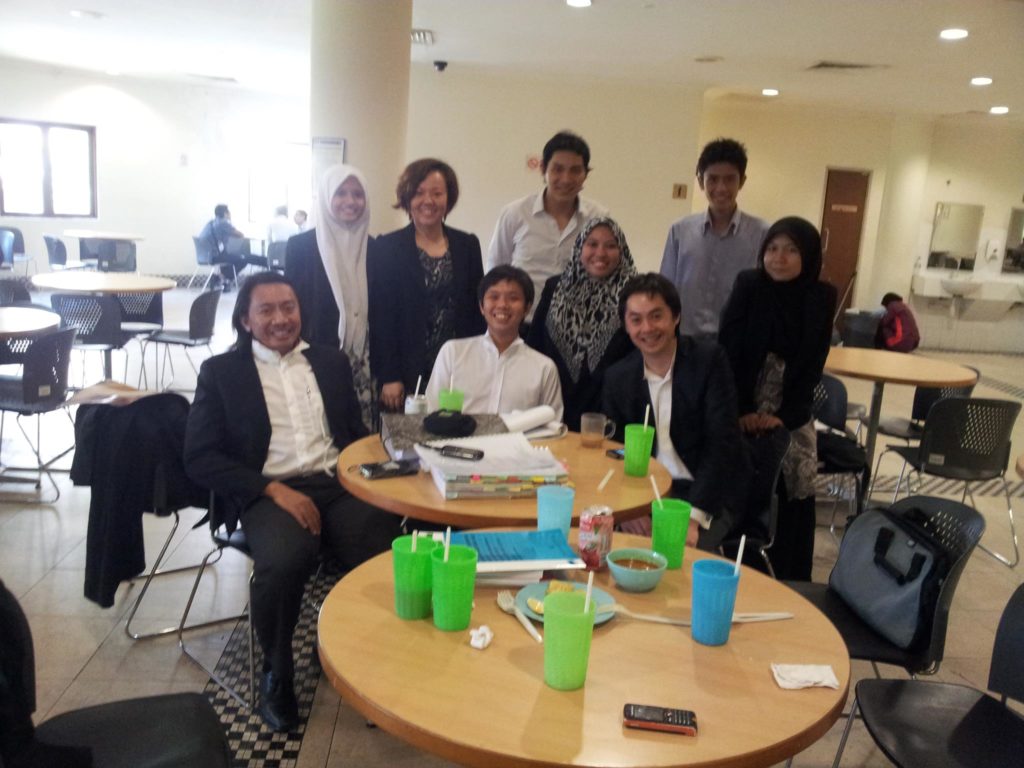Yazid Sufaat, Hilmi Hashim and Halimah Hussein were the first three individuals arrested and charged under the Security Offences (Special Measures) Act 2012 (SOSMA).
Their case was also my first foray into public interest litigation and constitutional law.
SOSMA is an extraordinary law made under Article 149 of the Federal Constitution.
Article 149 allows the Parliament to pass laws that would otherwise violate fundamental liberties enshrined in the Federal Constitution. This is to prevent subversion, organised violence, or acts prejudicial to public order in Malaysia.
Yazid, Hilmi and Halimah were arrested on 7 February 2013 under SOSMA for the promotion of terrorism through their religious study group in Ampang. Under SOSMA, they can be detained for up to 28 days.
The legal team (Amer Hamzah Arshad, Edmund Bon, Hida Nadirah, Fadiah Nadwa Fikri, Farida Mohd, Nur Zatulitri, Chan Yen Hui, Joshua Tay and I) filed a habeas corpus application for their release.
However, instead of opposing the habeas corpus application, the authorities decided to charge the three of them in the High Court for the promotion of terrorism under section 130G of the Penal Code (inciting, promoting or soliciting property for the commission of terrorist acts), which rendered the application academic.
This decision had severe implications. The promotion of terrorism is categorised as a security offence under SOSMA. This meant that their trial would be conducted under the trial procedures laid out in SOSMA.
A trial under the procedures of SOSMA is different from a normal criminal trial where the Criminal Procedure Code (CPC) and Evidence Act 1950 would be applicable.
A trial under the procedures of SOSMA is lopsided because that law allows the prosecution to circumvent many safeguards available under the CPC, as well as evidential requirements under the Evidence Act, all of which had been set in place to ensure a fair trial for the accused.
Soon after Yazid, Hilmi and Halimah were charged, we filed an application to strike out the charges against them on the grounds that the use of SOSMA is unconstitutional and violates Article 149.
Their trial under SOSMA would also violate their fundamental rights under Article 5 and Article 8 of the Federal Constitution, which respectively protects the right to fair trial and guarantees equal protection under the law.
We spent many nights drafting the submissions and preparing for the hearing, with little to no expectations that we would succeed. Such was the environment back then when it came to constitutional law cases.
Nevertheless, we soldiered on and did the hearing before the High Court Judge Y.A. Datuk Kamardin bin Hashim (as he then was) on 20 May 2013.
Seven years ago today.
At that time, Malaysia was still reverberating from the outcome of the 13th General Election (GE13) just two weeks before.
I remember we were quite distracted with the ongoing political developments post-GE13, with the Black 505 rallies.
Amer and Edmund were counsel. The hearing took up the whole morning and the High Court Judge reserved his decision until after lunch.
I remember the team had lunch at Tumis, Publika. In case you’re wondering why Tumis, Amer was not vegan nor vegetarian (nor whatever diet he is currently on, if any) back then.
After lunch, we returned to Court for the decision.
As it is with juniors, we were tasked with taking notes. Amer and Edmund were distracted with their own thoughts (edited this to make it Legal Profession Act-friendly).
When the Judge started reading his grounds of judgment, it sounded like we were going to lose, as we were expecting to. However, as he continued, it started sounding like we were going to win. Amer and Edmund were no longer distracted.
I remember being nudged by Edmund to make sure I had accurately written down everything the Judge was saying (I had not).
To our pleasant surprise, the Judge agreed with us.
When it became apparent that the Judge would rule in our favour, I remember that Yazid, Hilmi and Halimah cried out in joy from the dock and kissed the ground.
It was quite a surreal sight for a junior only in his second year of practice.
After the Judge struck out the charges against them and ordered them to be released, most of us in the courtroom were stunned. I was certainly one of them. Even the police officers from the Counter-Terrorism Division were unsure what to do.
Once she had been freed from her handcuffs, Halimah bolted out of the courtroom. We asked Yazid and Hilmi to immediately leave the court complex and go home with their families.
For a greenhorn, scoring an unexpected win felt exhilarating, especially when a charge was struck out on constitutional grounds.
There was no happy ending though.
One week later, SOSMA was used again. Yazid and Hilmi were charged again for a different security offence. Halimah had by then left the country and her whereabouts are still unknown.
Subsequently, the Court of Appeal overturned the decision of the High Court. We appealed to the Federal Court but the appeal was dismissed because there were live issues at the trial. The Federal Court declined to decide on the constitutional issues that arose in this case because there were facts that had not been ascertained.
Yazid and Hilmi would eventually undergo trial for security offences. But that is another story for another day.
SOSMA remains a draconian piece of legislation, where an accused would not be able to have a fair trial because the law shifts the goalposts in favour of the state.
I fully accept that the state has a duty and a legitimate interest in preventing threats against its people.
However, many provisions in SOSMA (especially Part V to VII) have nothing to do with the prevention of threats to national security.
Instead, they remove safeguards for a fair trial of the accused under the CPC and the Evidence Act. They then bind the judiciary on the conduct of the trial process and the admissibility of evidence.
I still strongly believe, as I did seven years ago, that parts of SOSMA are unconstitutional.

Yazid and Hilmi were freed in November 2019.



